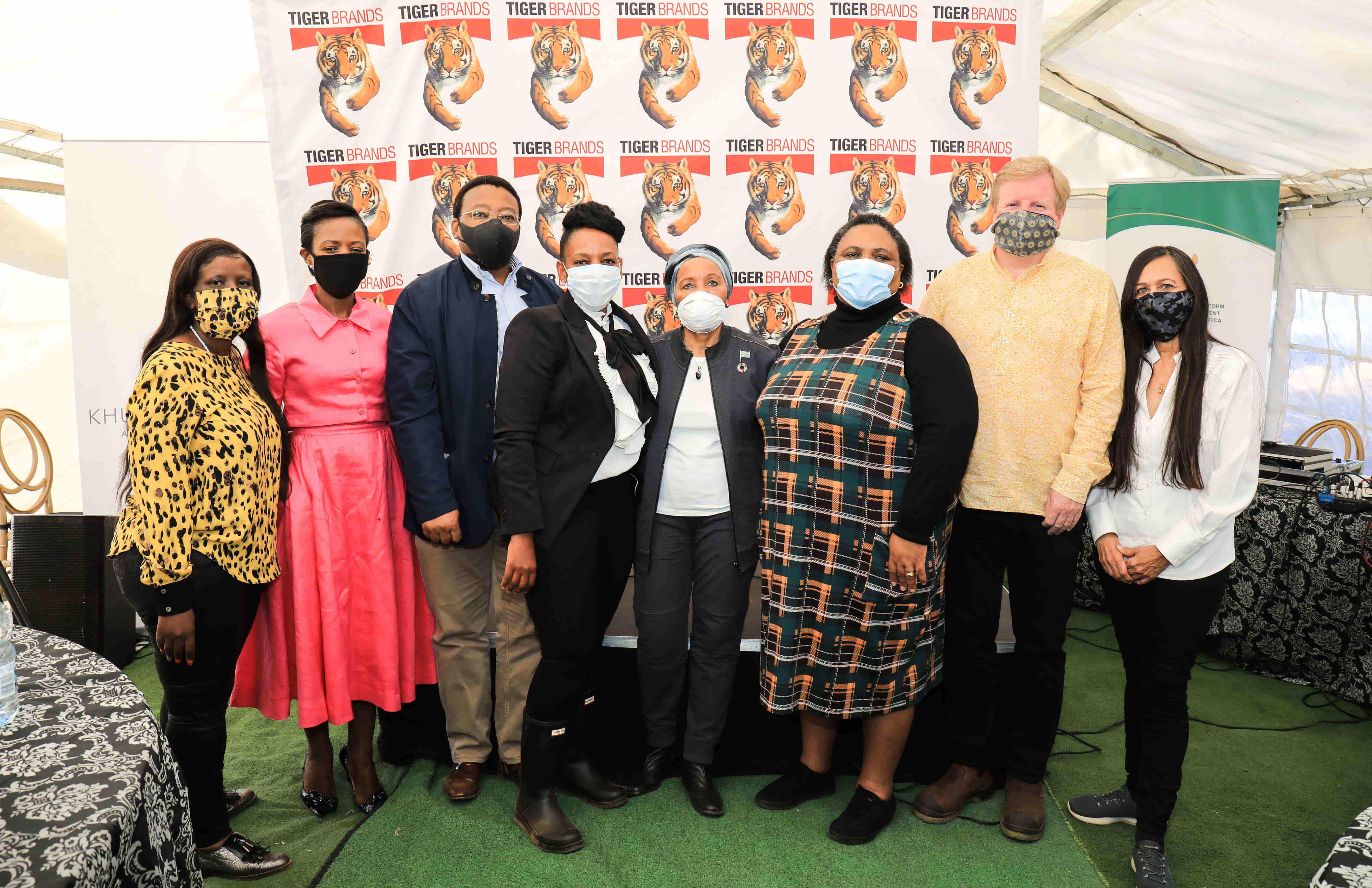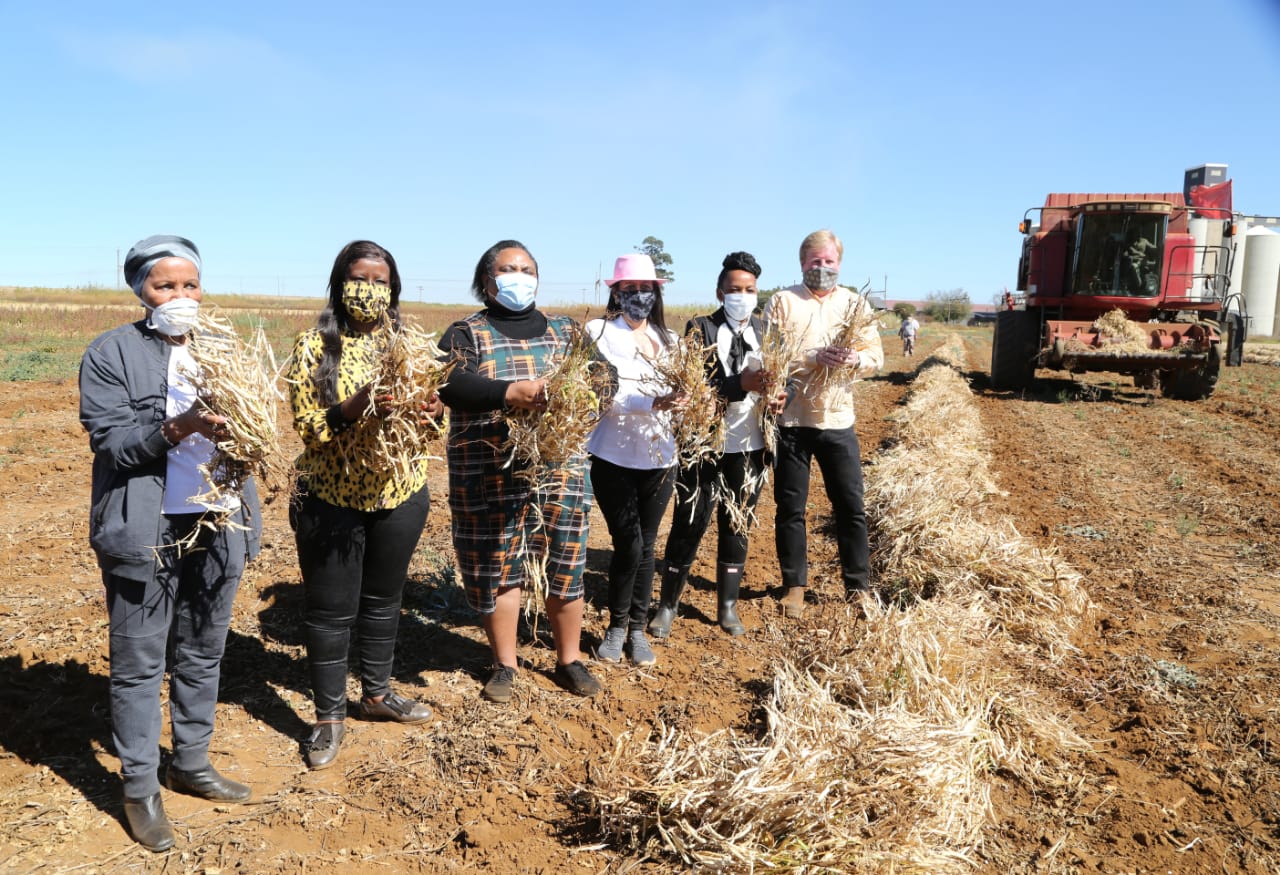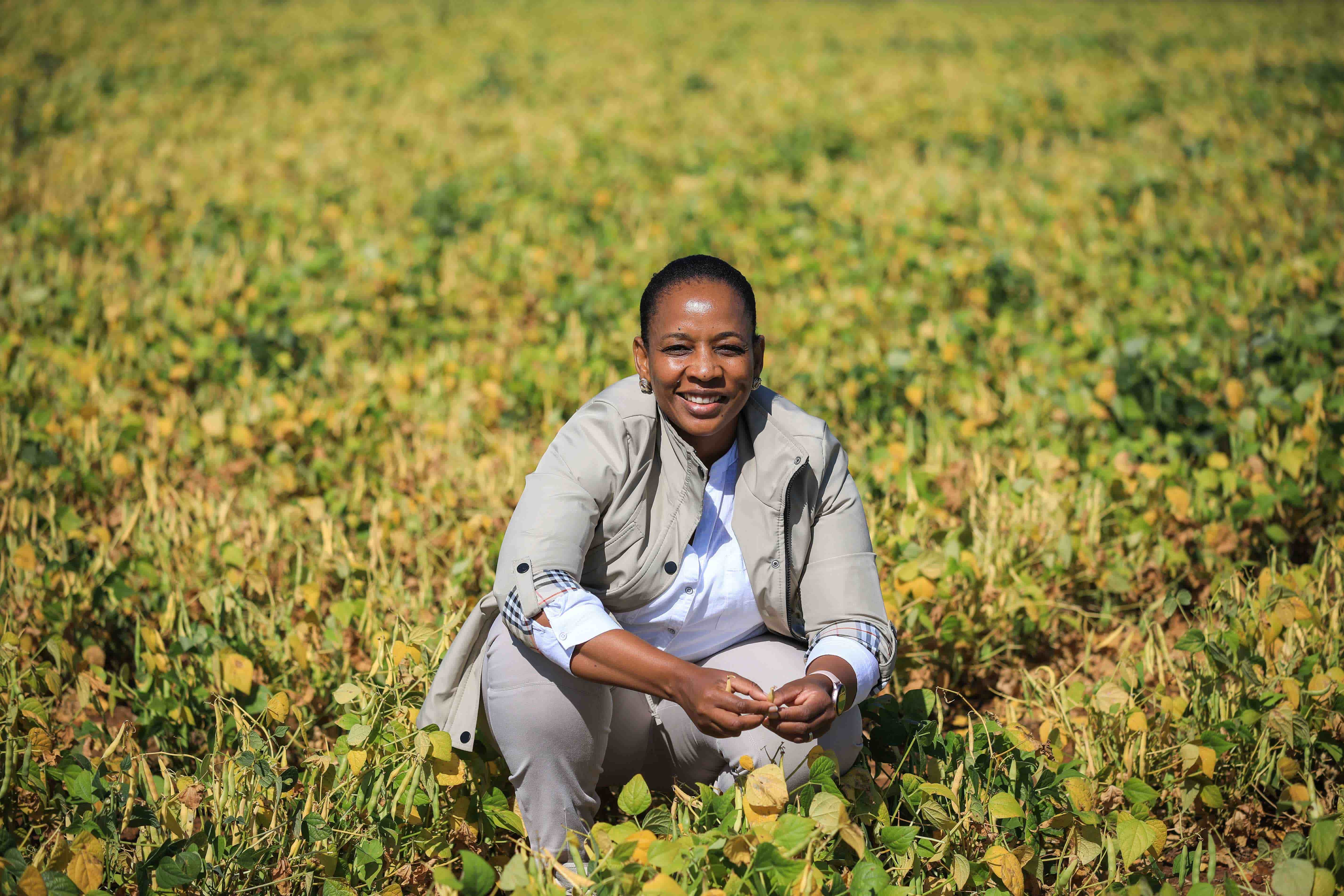The country’s largest food manufacturer, Tiger Brands, is prioritising the transformation of South Africa’s agricultural sector through ongoing support to its enterprise supplier development (ESD) programme. The programme supports black female farmers and black small-scale farmers with funding, market access, turnaround and commercialisation strategies, as well as mentorship and capacity building, as it bolsters its aggregator model.
In late 2020, Lusanda Moletsane's Khumo Ea Tsabo (KET) agricultural company was onboarded to Tiger Brands' agri-aggregator programme where her company was supported with R10.5 million which included a low interest loan and technical support funding; as part of Tiger Brands’ ESD, to supply the food manufacturer with small white beans by mid-2021.
“A small farmer with a 100-ha farm, or even a 1 000-ha farm, would never be able to supply a pan-African food manufacturer such as Tiger Brands, when you consider the tonnage required to supply our demand,” says Litha Kutta, Tiger Brands’ Enterprise and Supplier Development Director. “However, through our Aggregator programme, we are able to aggregate and empower small farmers with supported access to the formal agricultural market,” he continues.
Historically, one of the greatest challenges that face black smallholder farmers is access to funding. While there are similar programmes in the market, many are not anchored by access to market, financial support, and technical and mentorship support needed to be successful in the long-term.

“I’ve been acquainted with far too many farmers who live and work on a hand-to-mouth basis. My motivation is to help others build sustainable businesses and join the mainstream economy within the agricultural sector,” says Lusanda Moletsane. “I've seen the struggle to commercialise land that has been transferred to previously disadvantaged South Africans, I want to help these farmers run lucrative farms that generate enough money to cover their operating expenses and become profitable businesses that will grow in the future,” she continues.
Moletsane’s 16 years of experience as a turnaround specialist has enabled her to become Tiger Brands’ largest black-female-owned aggregator of small white beans. Her two farming clusters in Nigel and Bronkhorstspruit cover 10 000 ha and include 10 farmers – four of whom are black women. At the start of her first harvest, she expected to supply 2 tonnes of Tiger Brands’ small white beans.
She admits that it's impossible to know everything, hence the need for mentors who are technically inclined and entrepreneurially minded, especially as many farmers find it challenging to keep production and financial records – which are required to secure funding.

She believes that the difference between subsistence and commercial farming lies in subsistence farmers not paying enough attention to the finer details that make a crop commercial – such as the measures needed to increase productivity and boost yields.
“Nic Basson, an agronomist advisor and mentor to Moletsane , has helped KET identify land that is suitable for planting small white beans. He has also assisted the farmers with soil preparation, planting, weed and pest control and will assist with harvesting, cleaning and transportation of the harvest,” says Kutta.
“He wants the crop to be successful, just as we do, because it also impacts his reputation. Without him, we wouldn’t have been able to open certain doors in the agricultural sector,” adds Moletsane.
With Basson's help, Moletsane has inspired her farmers to increase the size of their farms and potential yields. As the harvest season approaches, she estimates that KET will supply 2 tonnes per hectare. She is already raising further grant funding for future expansion, to make waterways ahead of next year’s harvest, and to hire young agricultural graduates.
“I want my life’s legacy to be all the businesses that we've turned around, all the farmers that we've commercialised, and all the fallow lands that we have made productive. When we have 100 000ha under our care in five years’ time, then I’m going to say that I am helping to feed the nation,” concludes Moletsane.



